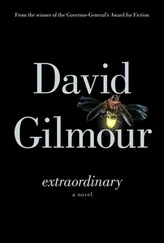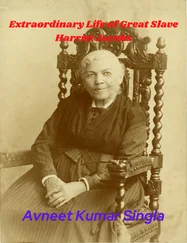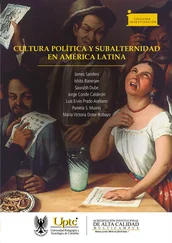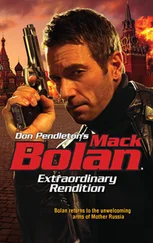14.
They were sealed in a windowless, unadorned stone room in which two metal chairs had been placed before a table of colorful catered food. Sturdy padlocks prevented entry into the closets, where the priests hung their civilian clothes while saying mass. A sentry stood guard in the hallway, the personal bodyguard of the prime minister of the republic of Hungary, of Magyarország, who was said to be interned in an adjoining backstage cell. Magda picked at a strawberry, then at a misshapen cube of melon, while Harkályi paced in small, waltz-like circles.
“This melody you will hear at the very end, in the final string quartet — it is the lullaby that your grandparents sang to us.”
“I remember. Papa would sing it too, but his voice was awful!”
“Perhaps not ‘awful,’ but what he lacked in talent he compensated for with volume.”
“Yeah, that’s definitely true.” Magda’s smile electrified him. “It’s funny that your parents sang in Hungarian.”
“They learned to sing before they learned how to speak. That was how they accumulated a vocabulary — one folk song at a time. It’s such a tragedy. They believed they would be safe in Budapest.”
“Papa didn’t really talk about the war, but I heard him tell my mother once, when she was sick, that his parents — your parents — wouldn’t have been safe anywhere. They were ‘too vocal.’ That was the term he used. That the best they hoped for was his safety and yours.”
“Tibor was fearless, even as a boy, as strong as a bull.”
“He always cried when he sang it.”
“Yes, that is understandable, certainly. It was very painful for me to transcribe, and perhaps it was a mistake to do so.”
“I can’t wait to hear it.”
“I cannot wait for this concert to … listen.”
The orchestra had started to warm up, to arrive at a shared tuning. To Harkályi, the cacophony was gorgeous, like a summer meteor shower dripping from the heavens. There were sounds, often from the reeds and winds, that some listeners would consider unappealing, but in reality no awful voices truly existed — not even his brother’s. The pre-musical chaos contained something honest, even truer than the manicured tones that would follow; it was music in the raw, free of false order, of linearity, and for that reason was ignored by the audience as if it were white noise. It was his favorite part of every concert. Colors and patterns of sound swirled forth from the altar, but were muted by the heavy wooden door.
His career as a composer was born, in a concentration camp, from hideous necessity. And it was in a concentration camp, now, that his beloved niece had gained employment. It was enough to make him weep. So like her grandmother, and so very and incalculably different. He wanted now to be alone, to fall to his knees and cry.
During the following weekend, the production of The Golden Lotus would be transferred across the river to the opera house, but Harkályi would not remain in Hungary long enough to witness the transition, or even to see for himself the Oriental-looking sets they constructed. He needed to return to his studio, to the empty staves that awaited him. Someday soon he would take on more composition students, when he felt confident that he had something to teach them. He would impart upon them the necessity of embracing the variety of willful ignorance that saw him through the greatest horrors that humanity can bestow, and which were responsible for this absurd celebrity. He will teach them to avoid the mistakes he had made. He will teach them to compose what they did not yet know and wished to understand.
There was silence, and then a faint knocking on the door. A young priest entered, without invitation, and gestured for them. “Tessék,” he said. Harkályi stood before Magda, before the radiant image of his own mother. She brushed lint from the shoulders of his coat. The stone he carried felt weightless. It released him from its servitude. He lifted it into the fluorescent light of the small room. “Put this in your purse, Magda. It once belonged to your father. One day I hope you will understand what it is.”
She took the stone from his hand, then smiled, though only faintly this time, confused, and kissed him on both cheeks. He was glad to be free of it.
“We should not keep them waiting any longer,” Harkályi said.
The door was opened. In a single moment, no more than that, he would enter the swelling concert hall, the heart of this cold church, to accept the adulation of a thousand strange, howling faces, their teeth bared. Only then will he feel that he has arrived safely at what he might call home.
1.
Brutus waited in the mess-hall line for twenty minutes, collected his grub, and sat facing the windows. He often went for days without speaking voluntarily to another soldier.
The men and women behind him, organized by race into table-sized ghettos, laughed and belched. He ate much too quickly and returned to his room. In the lull after breakfast the barracks remained more or less still while everyone shaved and shat or masturbated, if they could. The Army was putting something in the food. The huddled masses of soldiers and spies and torturers dissipated every morning at this time, quieting the hubbub almost to the point of nonexistence. Sparky was out, so Brutus had the room to himself. His bunkmate was a former seminarian from Massachusetts, and a punk. It came up on oh eight hundred and the sun still had not shown its ass. Five U.S. Marines were visiting from Budapest, and Brutus had to go fraternize, even though it was his only free day that whole week. But he had a few minutes, so he turned on the radio.
Brutus paid little attention to the Army Corps of Weather Prophets. They weren’t calling for snowfall, but then again, they weren’t calling for more war in the Balkans either. Or in the Middle East, for that matter. The government-sponsored stooges came on Armed Forces Radio with news of pending sunshine and brokered deals, sounding just like the spring training reports emanating from Florida. Hope sprang eternal. Back home, the Phillies signed another number-four starter; here, the Serbs signed another piece of anti-landmine legislation. Neither, Brutus knew, would last the season. The disembodied Voice of America also provided five minutes of English-language news at the top of every hour. It spoke of the lingering effects of a cyanide spill that had polluted the Tisza River and “devastated the livelihoods” of fishermen and chefs of Szeged’s famous fish soup; there was an update on the ongoing debate, unresolved after a decade of legal mumbo jumbo in the Hague, about a dam on the Hungary-Slovakia border; and of course there was talk of more summits and of the bright prospects for eternal peace next door in the once and future Yugoslavia. America was at war with terror.
“Asshole,” Brutus said, and switched the radio off.
In the eyes of the politicians and international tribunals, the prospects of long-term peace in the Balkans bore little relationship to the ongoing efforts of the civilian populations to establish their newly capitalistic lives — or to the army’s perpetual presence here in the middle of nowhere. The ground rules changed after 9/11 and no one knew what to expect anymore. Oversight of the few U.S. Army bases remaining in Eastern Europe — far from the active theaters — fell through the administrative cracks. Things worked differently here, if they worked at all.
Brutus had been in Hungary for almost seven months and in all that time had not stepped foot out of Taszár. He didn’t have clearance. The rec room had a high-def TV with a satellite hookup and a computer lab with e-mail and internet access, but letters from his sister Joan remained his main source of news from home. The rest of it was straight-up propaganda. She wrote once a week and sometimes sent books or magazines, which arrived with greasy thumbprints, or worse, pages sticking together. With a few minutes to spare, he reread her most recent letter. According to the postmark, it had only taken five days to reach him. People said that the frequent letters he sent home took about ten.
Читать дальше












